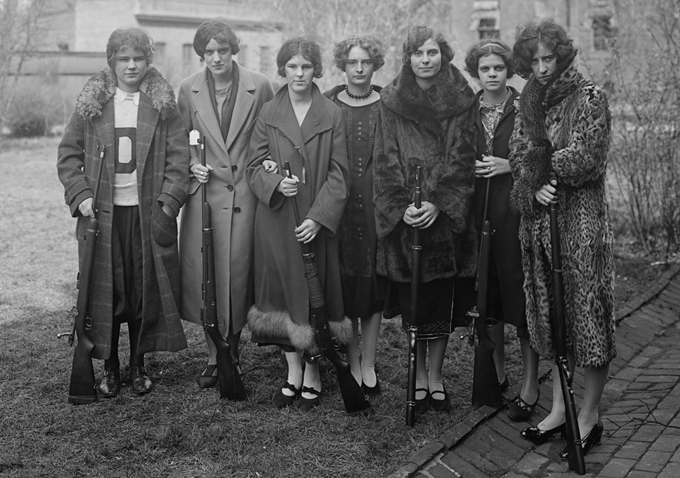
The common perspective is that teenagers are strange, uncertain creatures, temperamental, stubborn, hard to discipline and quick to rebel, and while there is some truth in those descriptions, they ignore the undeniable impact the demographic has had on history and culture. Indeed, teenagers are such a relatively new subculture, we’re only now beginning to understand their role in the social sphere to its fullest extent. Jon Savage‘s book “Teenage: The Prehistory of Youth Culture: 1875-1945” explores the rise of what we now know as the teenager, and it serves as the foundation for Matt Wolf‘s documentary/visual essay/docudrama “Teenage,” which is a clever assemblage of archival and historical material that unfortunately doesn’t quite go far enough.

Certainly, the aesthetic is impressive. With what we can only imagine was a tremendous amount of digging through boxes of old film, followed by an exhaustive editing process, Wolf collects vintage film, couples them with filmed portraits and diary entries from across the decades (with narration from Jena Malone, Ben Whishaw, Julia Hummer and Jessie Usher) and tracks the rise of four teens: Brenda Dean Paul, a scandalous British socialite; Melita Maschmann, a member of Hitler Youth; Tommie Scheel, a rebellious German Swing Kid; and Warren Wall, a black Boy Scout. And it’s tightly wound, precisely put together stuff, and while the instinct to use personal history to mirror cultural change is theoretically the right approach, in practice, “Teenage” suffers because it’s always wanting for more context and insight as the narrative continues to pivot around these personal tales.
As we learn in the film, the fast rise of the industrial revolution found young children brought in to work in near Dickensian-like factories, six days a week, with the kind of hours that would flatten an adult now. But as the push for workers rights eventually saw regulations come into place to outlaw child labor, suddenly there was a whole group of boys and girls left to their own devices. Their time was filled with school of course, but with more opportunity to seek out the world around them, teenagers began to step into the sphere of art and culture, helping to shape trends like swing dancing or jazz age decadence. However, even if the law protected them from backbreaking work in horrid conditions, it didn’t keep them out of any wars. Teens were still recruited to fight in the two World Wars, and many signed up proudly, but it underscored the perception that these youths were viewed, if not fodder for manufacturing, then fodder for the battlefield.

And through the four “protagonists” of the documentary, each providing a unique perspective, we get a sense of what the teenage experience at that time would’ve been like, what relationships would’ve been formed, and even how the Hitler Youth would be an intriguing proposition for a young person. But what did parents, teachers and politicians make of these changes? How did urban areas transform to accommodate a growing class of young individuals with money to spend? This is just as crucial in the telling of the rise of the teenager, but mostly it’s treated with a disappointing simplicity the rest of the film lacks. Wolf often cuts to videos of badgering parents, or slightly awed news reports about the teenage phenomenon, without the same critical engagement the rest of the movie gets. And that’s when the basic construction of “Teenage” starts to lose its lustre, with the assembly of various materials starting to lose its allure as the repetitive nature of the narrative begins to show.
But that said, Wolf’s film is still admirable, and aided by a pretty spot on score by Deerhunter frontman Bradford Cox, “Teenage” feels both present and past. The interests, influence and irritations of teenagers today are still largely the same. The romance and hopes of young people are still without boundaries or dulled by practical reasoning, and that’s perhaps the biggest takeaway of the doc: that the times may change, but teenagers will forever be restless, and through that desire for more, will continue to push our world forward. [B-]

